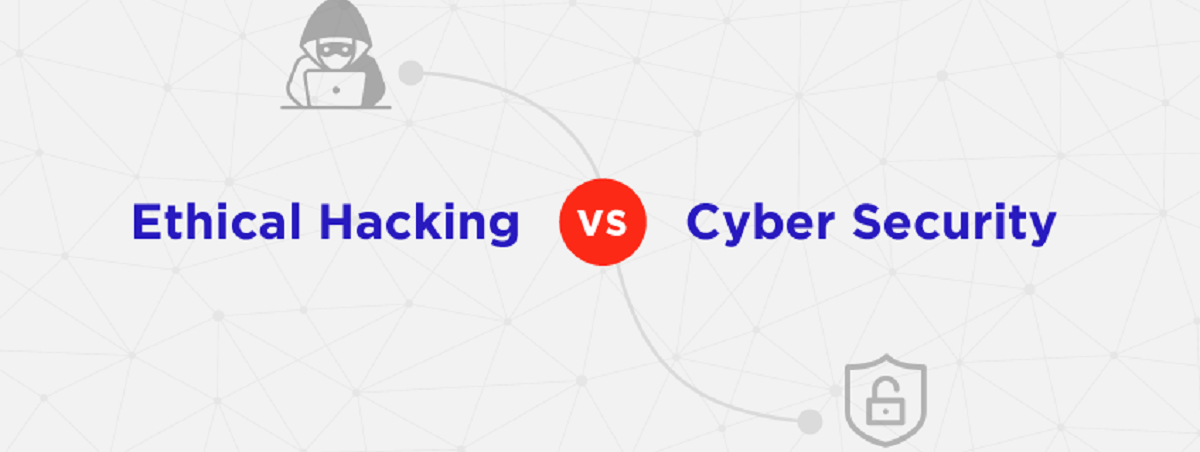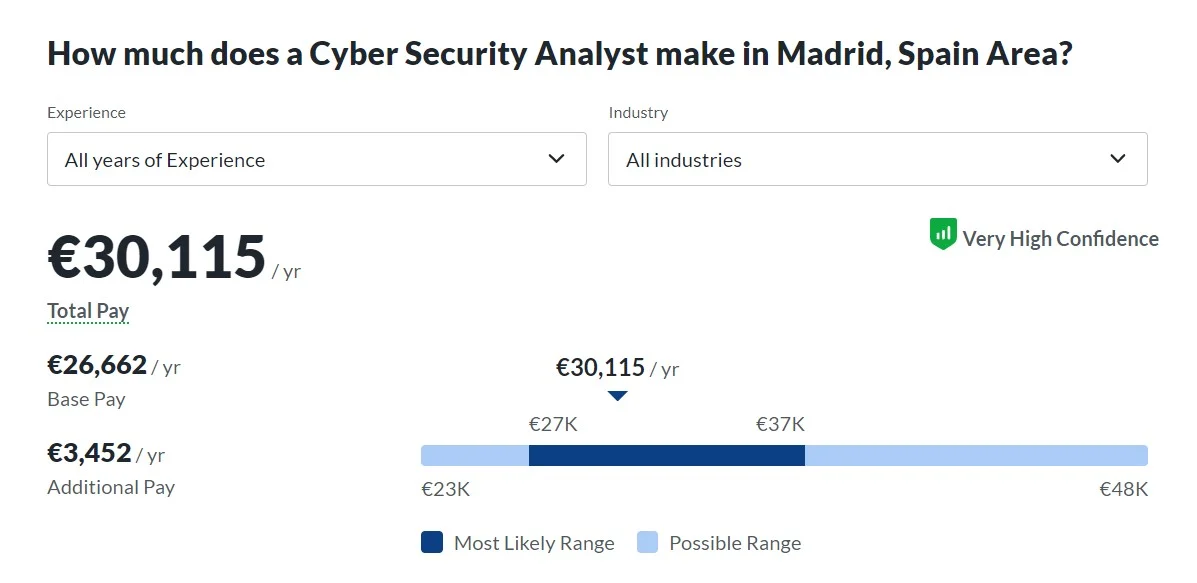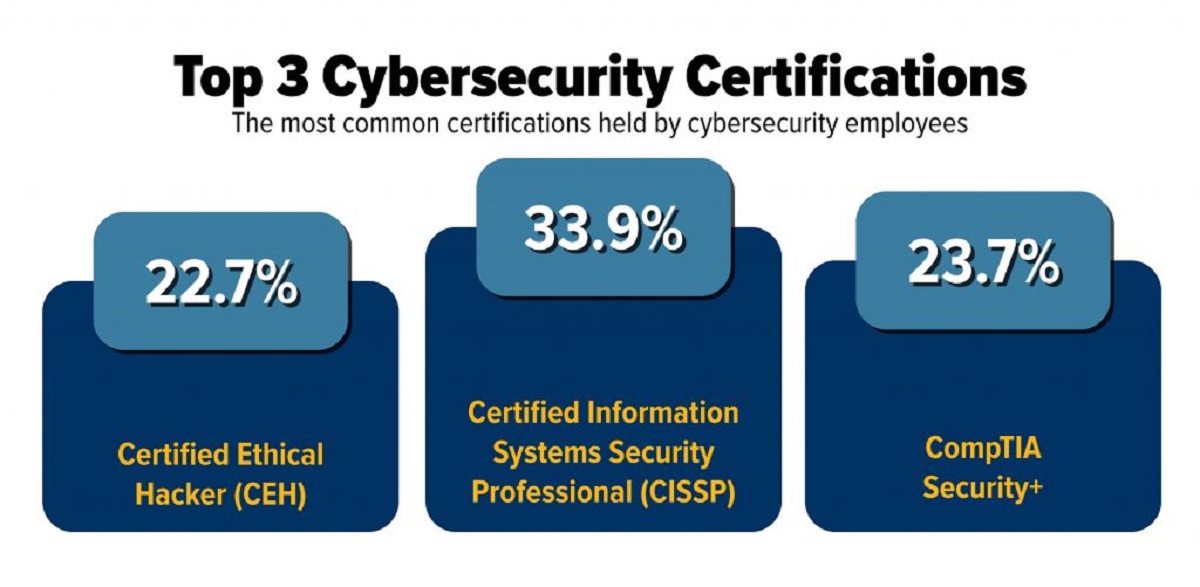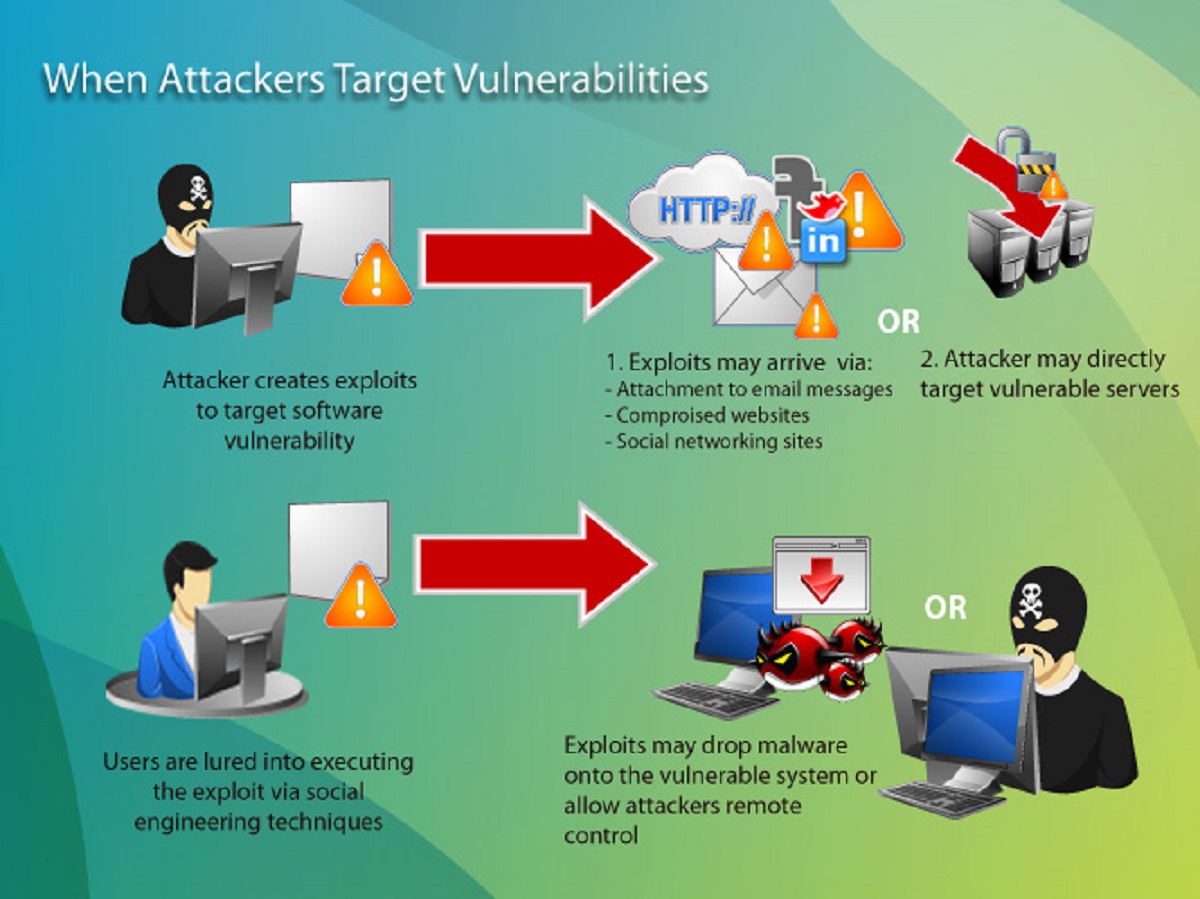Introduction
Welcome to the world of cybersecurity, where the battle between hackers and cybersecurity professionals unfolds daily. In today’s digital age, where technology permeates every aspect of our lives, the need to protect sensitive information and systems from cyber threats is more critical than ever. But what exactly distinguishes a hacker from a cybersecurity professional?
A hacker, in popular culture, is often associated with criminal activities and malicious intent. However, the term “hacker” itself is not inherently negative. Originally, hackers were individuals who possessed exceptional computer skills and had a penchant for exploring and understanding how computer systems and networks worked. They were often motivated by curiosity to uncover vulnerabilities in systems and create innovative solutions.
On the other hand, a cybersecurity professional is an individual who has chosen to use their knowledge and skills to defend computer systems and networks from malicious activities. Their primary goal is to protect sensitive data, prevent unauthorized access, and ensure the overall security of digital environments.
The distinction between hackers and cybersecurity professionals lies in their motivations, goals, and the legal and ethical considerations that guide their actions. While both may possess similar technical skills, their intentions and the way they apply those skills set them apart.
In this article, we will delve into the differences between hackers and cybersecurity professionals, exploring their skills, knowledge, motivations, job roles, and more. By gaining a better understanding of these two distinct roles, we can appreciate the importance of cybersecurity and the individuals who work tirelessly to keep our digital world safe.
Definition of a Hacker
When mentioning the term “hacker,” it is crucial to recognize the varying perceptions and interpretations associated with it. In popular culture, hackers are often depicted as individuals who engage in illegal and malicious activities, breaching computer systems and stealing valuable information. However, this portrayal only scratches the surface of what a hacker truly is.
At its core, a hacker is someone who possesses deep knowledge and expertise in computer systems, networks, and software. They have a natural curiosity and an insatiable desire to understand how technology functions. Hackers enjoy exploring the inner workings of computers and networks, uncovering vulnerabilities, and finding novel solutions to problems.
There are different types of hackers, each with their own motivations and goals:
- White Hat Hackers: Also known as ethical hackers, these individuals use their skills to help organizations identify vulnerabilities in their systems and networks. They work within the legal frameworks and obtain permission from the owners to conduct security testing and penetration testing.
- Black Hat Hackers: These hackers engage in illegal activities and exploit vulnerabilities for personal gain. Their actions can range from stealing sensitive information to spreading malware and conducting cyber-attacks. Black hat hackers often have malicious intent and operate outside the boundaries of the law.
- Grey Hat Hackers: This category represents hackers who fall somewhere in between white hat and black hat hackers. They may discover vulnerabilities in systems without malicious intent but do not always obtain permission before doing so. While their motives may not be purely ethical, they often disclose vulnerabilities to the affected organizations.
- Script Kiddies: Often lacking in-depth technical knowledge, script kiddies use pre-existing hacking tools and scripts to carry out attacks without fully understanding the underlying mechanisms.
- Hacktivists: These hackers have a strong ideological or political agenda and aim to disrupt or target organizations or governments that they perceive as unjust.
It’s important to note that the categorization of hackers is not always clear-cut, and individuals may move between different categories depending on their intent and actions.
While the term “hacker” has gained negative connotations over time, it’s crucial to remember that not all hackers engage in malicious activities. Many hackers contribute positively to the cybersecurity community by uncovering vulnerabilities and creating patches to enhance the security of systems and networks.
In the next section, we will explore the definition of a cybersecurity professional and shed light on the skills and knowledge required to excel in this field.
Definition of a Cybersecurity Professional
A cybersecurity professional is an individual who specializes in safeguarding computer systems, networks, and data from unauthorized access, cyber-attacks, and other digital threats. They play a crucial role in protecting sensitive information and ensuring the overall security of digital environments. Unlike hackers, cybersecurity professionals are focused on defending against attacks rather than exploiting vulnerabilities.
These professionals are highly skilled and knowledgeable in various areas of cybersecurity, including network security, application security, cloud security, incident response, and risk management. They work diligently to identify potential vulnerabilities and implement preventive measures to mitigate the risk of cyber-attacks.
Some common roles within the field of cybersecurity include:
- Security Analyst: These professionals analyze security systems and investigate any incidents or breaches that occur. They work to identify vulnerabilities and develop strategies to enhance security measures.
- Penetration Tester: Also known as ethical hackers, penetration testers simulate real-world attacks to identify weaknesses in systems and networks. Their primary goal is to identify vulnerabilities before malicious hackers can exploit them.
- Security Engineer: Security engineers design, implement, and manage security systems and protocols. They are responsible for ensuring that all components of an organization’s digital infrastructure are secure and compliant with industry standards.
- Security Consultant: These professionals work with organizations to assess their security posture and provide recommendations for improvements. They help organizations develop robust security policies, procedures, and strategies.
- Chief Information Security Officer (CISO): The CISO is responsible for the overall security of an organization. They oversee the implementation of security measures, manage security teams, and ensure compliance with regulatory requirements.
Successful cybersecurity professionals possess a combination of technical skills, problem-solving abilities, and a deep understanding of the ever-evolving landscape of cyber threats. They must stay up to date with the latest technologies, security trends, and attack methodologies to effectively protect digital environments.
In addition to technical expertise, cybersecurity professionals must also have strong communication and collaboration skills. They often work closely with stakeholders across different departments to implement security measures and educate employees about best practices for maintaining a secure digital ecosystem.
While hackers and cybersecurity professionals are both knowledgeable about computer systems and networks, the distinction lies in their motivations and objectives. Hackers seek to exploit vulnerabilities and gain unauthorized access, while cybersecurity professionals dedicate themselves to defending against those attacks.
In the following sections, we will explore the skills, motivations, training, and responsibilities of hackers and cybersecurity professionals in-depth to gain a comprehensive understanding of their roles within the realm of cybersecurity.
Skills and Knowledge of a Hacker
Hackers possess a wide range of technical skills and knowledge that enable them to explore and exploit vulnerabilities in computer systems and networks. While the skills and knowledge of a hacker can vary depending on their specialization and experience, there are several core areas in which they excel.
Programming Skills: Hackers have a deep understanding of programming languages such as C, C++, Python, Java, and PHP. They can analyze code, identify vulnerabilities, and manipulate software to exploit weaknesses.
Network Knowledge: Hackers are proficient in network protocols and possess a comprehensive understanding of how data is transmitted and received across networks. They can intercept and manipulate data packets, perform network reconnaissance, and exploit network vulnerabilities.
Vulnerability Assessment and Penetration Testing: Hackers are skilled in assessing the security of computer systems and networks. They can identify vulnerabilities, perform penetration testing to exploit weaknesses, and provide recommendations for improving security measures.
Cryptographic Knowledge: Hackers have a deep understanding of encryption algorithms, cryptographic protocols, and cryptographic systems. They can analyze cryptographic implementations and identify weaknesses that could lead to data breaches.
Reverse Engineering: Hackers have the ability to reverse engineer software and hardware to understand their inner workings. By analyzing how the technology operates, they can uncover vulnerabilities and find ways to exploit them.
Social Engineering: Hackers are skilled at manipulating human psychology to gain unauthorized access to systems or sensitive information. They may use techniques such as phishing, pretexting, or impersonation to deceive individuals and obtain confidential data.
Operating System Knowledge: Hackers have in-depth knowledge of various operating systems, including Windows, macOS, and Linux. They understand the internals of these systems, allowing them to identify vulnerabilities and exploit them.
Problem-Solving Skills: Hackers possess exceptional problem-solving skills, allowing them to think creatively and find unique solutions to complex technical challenges. They can analyze systems holistically, identify weak points, and exploit them to achieve their objectives.
Continuous Learning: Hackers have a thirst for knowledge and constantly strive to keep up with the latest technologies, vulnerabilities, and hacking techniques. They stay updated on new tools, methodologies, and security trends to maintain their effectiveness in the ever-evolving field of cybersecurity.
It is important to note that the skills and knowledge of hackers can be used for both malicious and ethical purposes. Ethical hackers, also known as white hat hackers, use their knowledge and skills to help organizations identify and mitigate vulnerabilities, ultimately enhancing overall security.
In the next section, we will explore the skills and knowledge that cybersecurity professionals possess, and how they differ from those of hackers.
Skills and Knowledge of a Cybersecurity Professional
Cybersecurity professionals possess a diverse set of skills and knowledge that enable them to protect computer systems, networks, and data from cyber threats. Their expertise and abilities are focused on defending against attacks and ensuring the overall security of digital environments.
Understanding of Security Principles and Frameworks: Cybersecurity professionals have a comprehensive understanding of security principles, frameworks, and industry standards such as ISO 27001, NIST, and CIS Controls. They can apply these principles to develop effective security strategies and guidelines.
Network Security: These professionals are well-versed in network security protocols, architecture, and technologies. They can implement firewalls, intrusion detection/prevention systems, and secure network configurations to protect against unauthorized access and data breaches.
Vulnerability Management: Cybersecurity professionals possess the skills to identify, assess, and prioritize vulnerabilities in computer systems and networks. They actively monitor for new vulnerabilities and apply patches or implement mitigation strategies to reduce the risk of exploitation.
Incident Response: When a security incident occurs, cybersecurity professionals are skilled in identifying and responding to the incident in a timely and effective manner. They can analyze the impact of incidents, implement containment measures, and recover affected systems while preserving evidence.
Secure Coding: These professionals understand secure coding practices and can evaluate the security of applications. They can conduct code reviews, implement security controls, and provide guidance to developers to prevent and mitigate common security vulnerabilities.
Security Auditing and Compliance: Cybersecurity professionals are proficient in conducting security audits and ensuring compliance with legal and regulatory requirements. They assess an organization’s security posture, identify gaps in compliance, and develop remediation plans.
Encryption and Cryptography: Professionals in cybersecurity have a deep understanding of encryption algorithms, encryption key management, and cryptographic protocols. They can implement encryption methods to protect sensitive data and ensure secure communication channels.
Threat Intelligence: These professionals stay up to date with the latest cyber threats, attack techniques, and trends in the cybersecurity landscape. They leverage threat intelligence tools and sources to anticipate and proactively defend against evolving threats.
Risk Management: Cybersecurity professionals assess and manage risks associated with the organization’s digital assets. They can identify potential risks, analyze their potential impact, and develop strategies to mitigate those risks effectively.
Communication and Collaboration: Effective communication and collaboration skills are vital for cybersecurity professionals. They work closely with cross-functional teams, stakeholders, and management to establish security policies, educate employees, and ensure a culture of security within the organization.
Cybersecurity professionals dedicate their efforts to maintaining the confidentiality, integrity, and availability of information systems. Their skills and knowledge are focused on protecting digital assets, detecting and responding to threats, and ensuring the overall security posture of organizations.
In the following sections, we will explore the motivations and goals of hackers and cybersecurity professionals, as well as the legal and ethical considerations that guide their actions.
Motivations and Goals of a Hacker
The motivations and goals of hackers can vary greatly depending on their individual circumstances, beliefs, and backgrounds. While some hackers engage in illegal and malicious activities for personal gain, others may pursue hacking as a means of exploration, ethical hacking, or even activism.
Financial Gain: One common motivation among hackers is financial gain. These individuals aim to profit from their illegal activities, such as stealing sensitive information, conducting ransomware attacks, or selling stolen data on the black market.
Curiosity and Exploration: For some hackers, the primary motivation is the curiosity to explore computer systems and networks. They enjoy the thrill of uncovering vulnerabilities, understanding how technology works, and pushing the boundaries of what is possible.
Ethical Hacking and Security Research: Ethical hackers, also known as white hat hackers, have the motivation to use their skills for good. They strive to identify vulnerabilities in systems and networks, helping organizations improve their security posture. Their goal is to enhance overall cybersecurity and protect against potential threats.
Activism and Hacktivism: Hackers with a strong ideological or political agenda may engage in hacking activities to further their cause. These hackers, known as hacktivists, aim to disrupt or target organizations or governments that they perceive as unjust. Their goals may include exposing corruption, promoting freedom of speech, or advocating for social justice.
Notoriety and Recognition: Some hackers are motivated by the desire for recognition and notoriety within the hacking community. They may aim to showcase their technical prowess and demonstrate their abilities by successfully breaching high-profile targets or executing complex attack techniques.
Challenge and Competition: For certain hackers, the thrill of overcoming challenging technical obstacles is the driving force behind their activities. They seek to continuously test their skills and compete with other hackers in forums, competitions, and capture the flag (CTF) events.
It is important to note that engaging in hacking activities with malicious intent is illegal and unethical. While hackers may have differing motivations, the actions they take to exploit vulnerabilities, steal information, or disrupt systems have real-world consequences.
Ethical hackers play a crucial role in the cybersecurity industry by using their skills to uncover vulnerabilities and help organizations improve their security. The distinction lies in their goals and adherence to legal and ethical guidelines. While some hackers aim to disrupt and exploit, cybersecurity professionals focus on protecting systems, safeguarding data, and defending against cyber threats.
In the next section, we will explore the motivations and goals of cybersecurity professionals, and how their objectives align with the need for a secure digital landscape.
Motivations and Goals of a Cybersecurity Professional
The motivations and goals of cybersecurity professionals differ from those of hackers. While hackers may exploit vulnerabilities for personal gain or curiosity, cybersecurity professionals are driven by the responsibility to protect computer systems, networks, and data from cyber threats. Their motivations are anchored in the desire to ensure the confidentiality, integrity, and availability of digital assets.
Protecting Sensitive Information: One of the primary motivations for cybersecurity professionals is their commitment to safeguarding sensitive information. They understand the importance of maintaining the privacy of personal and organizational data, and work diligently to prevent unauthorized access and data breaches.
Preventing Cyber Threats: Cybersecurity professionals are motivated by the desire to mitigate and prevent cyber threats. Their goal is to stay one step ahead of potential attackers by identifying vulnerabilities, implementing security controls, and developing incident response plans to protect against various attack vectors.
Maintaining Business Continuity: Ensuring the uninterrupted operation of computer systems is a key goal for cybersecurity professionals. By implementing robust security measures and disaster recovery plans, they strive to minimize the impact of cyber incidents and maintain business continuity in the face of potential disruptions.
Compliance and Regulatory Requirements: Many cybersecurity professionals are driven by the need to comply with industry regulations and legal requirements. They work to establish and enforce security measures that align with industry standards, ensuring organizations meet compliance obligations.
Building Trust and Confidence: Cybersecurity professionals recognize that establishing trust is crucial in today’s digital landscape. By implementing strong security measures and protecting against cyber threats, they aim to build trust among customers, partners, and stakeholders, promoting a secure environment for all.
Continuous Learning and Growth: The ever-evolving nature of cybersecurity motivates professionals to continually expand their knowledge and skills. They actively seek out opportunities for professional development, staying up to date with the latest technologies, trends, and best practices in the field.
Ethical Responsibility: Cybersecurity professionals have a strong sense of ethical responsibility. They understand the potential consequences of a security breach and are driven to prevent harm to individuals, organizations, and society as a whole. They strive to protect against cyber threats and maintain the trust and integrity of digital systems.
Protecting National Security: Some cybersecurity professionals are motivated by a sense of duty to protect national security. They work in government agencies or defense organizations to defend critical infrastructure and ensure the security of sensitive information that impacts a nation’s well-being.
The motivations and goals of cybersecurity professionals are vital for maintaining a secure and resilient digital ecosystem. By focusing on prevention, protection, and continuous improvement, they play a crucial role in mitigating cyber risks and ensuring the overall security of computer systems and networks.
In the next sections, we will explore the legal and ethical considerations that guide the actions of hackers and cybersecurity professionals, as well as the training and education required to excel in these fields.
Legal and Ethical Considerations
When discussing the activities of hackers and cybersecurity professionals, it is essential to understand the legal and ethical implications surrounding their actions. The distinction between legal and illegal, ethical and unethical, guides the behavior and responsibilities of individuals in the cybersecurity landscape.
Hackers and the Law: Engaging in illegal hacking activities, such as unauthorized access, data breaches, or spreading malware, is against the law in most jurisdictions. These actions can result in severe consequences, including criminal charges, fines, and imprisonment. It’s important to recognize that hacking for malicious purposes is a criminal activity and should not be condoned.
Cybersecurity Professionals and the Law: On the other hand, cybersecurity professionals operate within the boundaries of the law. Ethical hacking, also known as white hat hacking, involves obtaining permission from the owners to identify vulnerabilities, conduct security testing, and assist in fortifying systems against potential threats. Compliance with legal frameworks and regulations is crucial for cybersecurity professionals to ensure their actions are lawful.
Ethics of Hacking: Ethical hacking and cybersecurity encompass a set of ethical guidelines that professionals adhere to. This includes obtaining proper authorization, protecting the privacy of individuals and organizations, and adhering to professional codes of conduct. Ethical hackers prioritize the responsible use of their skills to enhance security and protect against unauthorized access rather than exploiting vulnerabilities for personal gain.
Data Privacy and Protection: Both hackers and cybersecurity professionals understand the importance of protecting data privacy. Ethical considerations regarding the collection, storage, and use of personal and sensitive information are paramount. Cybersecurity professionals work diligently to implement security measures that safeguard data and comply with privacy regulations, such as the General Data Protection Regulation (GDPR) or Health Insurance Portability and Accountability Act (HIPAA).
Transparency and Disclosure: A crucial ethical principle for both hackers and cybersecurity professionals is transparency and responsible disclosure. Ethical hackers, upon discovering vulnerabilities, typically follow responsible disclosure protocols, where they notify the relevant organizations and allow them to address the issue before publicly disclosing the details. Transparency and honest communication help foster a culture of trust and collaboration between security researchers and organizations.
Respecting Intellectual Property: Hackers and cybersecurity professionals recognize the importance of intellectual property rights. Unauthorized use or distribution of copyrighted materials, software, or proprietary information is unethical and illegal. Respecting intellectual property fosters fairness, innovation, and creativity within the cybersecurity field.
Understanding the legal and ethical considerations surrounding hacking and cybersecurity is essential for guiding responsible actions in the digital realm. While hackers engaging in malicious activities face legal repercussions, cybersecurity professionals prioritize the protection of systems, data, and individuals while complying with the law and upholding ethical standards.
In the following sections, we will explore the training and education required to become a hacker or cybersecurity professional, as well as the various job roles and responsibilities within these fields.
Training and Education
Both hackers and cybersecurity professionals require specific training and education to acquire the skills and knowledge necessary for their respective roles. While the path to becoming a hacker may vary, formal education and continuous learning play a significant role in the development of cybersecurity professionals.
Hackers: Hackers often acquire their skills through self-learning, hands-on experience, and exploration. They may engage in online forums, participate in hacking competitions, and experiment with different technologies and tools. Many hackers develop proficiency in programming, networking, and systems through practical experience and self-study.
Cybersecurity Professionals: In the realm of cybersecurity, formal education and professional certifications are highly valued. Many cybersecurity professionals pursue bachelor’s or master’s degrees in cybersecurity, computer science, or a related field. These programs provide a well-rounded education in areas such as network security, cryptography, ethical hacking, and risk management.
Several organizations offer certifications that validate the knowledge and skills of cybersecurity professionals. Popular certifications include Certified Ethical Hacker (CEH), Certified Information Systems Security Professional (CISSP), Certified Information Security Manager (CISM), and CompTIA Security+. These certifications demonstrate proficiency in different areas of cybersecurity and are often sought after by employers in the industry.
It is worth noting that hands-on experience and continuous learning are crucial for both hackers and cybersecurity professionals. Staying up to date with the latest hacking techniques, security trends, and emerging technologies is essential in this rapidly evolving field.
Moreover, ethical considerations and professional ethics play a significant role in the training of cybersecurity professionals. Many educational programs highlight the importance of ethics, legal compliance, and responsible hacking practices to foster a strong ethical foundation among future cybersecurity professionals.
Internships, practical projects, and real-world experiences provide invaluable opportunities for aspiring cybersecurity professionals to apply their knowledge and skills in a professional environment. These experiences allow individuals to gain practical insights, collaborate with industry experts, and develop critical problem-solving abilities.
Overall, both hackers and cybersecurity professionals acquire their skills and knowledge through a combination of formal education, self-learning, practical experience, and continuous professional development. The cybersecurity field offers a wide range of educational resources and certifications to enhance professional growth and ensure competent and ethical practitioners.
In the next section, we will explore the different job roles and responsibilities within the fields of hacking and cybersecurity.
Job Roles and Responsibilities
Within the fields of hacking and cybersecurity, various job roles exist, each with distinct responsibilities and areas of expertise. These roles encompass a wide range of responsibilities, all crucial for maintaining the security and integrity of digital environments.
Hackers: Hackers adopt different roles within the hacking community, depending on their specialization and motivations. These roles can include:
- White Hat Hackers/Ethical Hackers: Ethical hackers work to identify vulnerabilities in systems and networks, often employed by organizations to conduct security testing and penetration testing. Their responsibility is to uncover weaknesses and provide recommendations for enhancing security.
- Black Hat Hackers: Black hat hackers engage in illegal activities, exploiting vulnerabilities for personal gain or malicious intent. Their actions may involve stealing data, spreading malware, or conducting cyber-attacks.
- Grey Hat Hackers: Grey hat hackers fall somewhere between white hat and black hat hackers. They may discover vulnerabilities without malicious intent but do not always obtain permission before doing so. They often disclose vulnerabilities to the affected organizations.
- Script Kiddies: Script kiddies lack the technical expertise of other hackers. They use pre-existing hacking tools and scripts to carry out attacks without fully understanding the underlying mechanisms.
- Hacktivists: Hacktivists leverage hacking techniques to promote a social or political agenda. Their activities aim to disrupt or target organizations or governments they perceive as unjust.
Cybersecurity Professionals: Within the cybersecurity field, different job roles exist, each with specific responsibilities to secure systems and networks. These roles include:
- Security Analyst: Security analysts analyze security systems, investigate incidents, and identify vulnerabilities. They develop strategies to enhance security measures and ensure the protection of digital assets.
- Penetration Tester: Also known as ethical hackers, penetration testers simulate real-world attacks to identify weaknesses in systems and networks. They aim to uncover vulnerabilities before malicious hackers can exploit them.
- Security Engineer: Security engineers design and implement security systems and protocols. They work to secure networks, applications, and infrastructure components, ensuring the overall integrity and confidentiality of data.
- Security Consultant: Security consultants assess an organization’s security posture, identify vulnerabilities, and provide recommendations to improve security. They collaborate with organizations to develop and implement robust security strategies.
- Chief Information Security Officer (CISO): The CISO is responsible for overseeing an organization’s overall security posture. They develop and implement security policies, manage security teams, and ensure compliance with regulatory requirements.
Each job role within hacking and cybersecurity requires a combination of technical skills, problem-solving abilities, and a dedication to protecting computer systems and networks. Collaboration and communication skills are also essential, as these professionals often work with cross-functional teams to implement security measures and educate employees.
Ultimately, through their roles and responsibilities, hackers and cybersecurity professionals play critical roles in safeguarding digital ecosystems and mitigating cyber threats. While the motivations and goals may differ, their collective efforts work towards a more secure and resilient digital world.
In the final section, we will conclude our exploration of the differences between hackers and cybersecurity professionals and the vital role that each plays in the field of cybersecurity.
Collaboration and Cooperation
Collaboration and cooperation are vital aspects of the cybersecurity landscape, bringing together hackers, cybersecurity professionals, and various stakeholders to collectively work towards a more secure digital environment. While hackers and cybersecurity professionals may have different motivations and goals, there are opportunities for collaboration and mutual cooperation in certain scenarios.
White Hat Hackers and Cybersecurity Professionals: Ethical hackers, also known as white hat hackers, play a crucial role in collaborating with cybersecurity professionals. With their expertise in identifying vulnerabilities, ethical hackers can assist organizations in improving their security posture. By working together, ethical hackers and cybersecurity professionals can close security gaps and develop effective strategies for future cybersecurity challenges.
Responsible Disclosure of Vulnerabilities: Hackers who identify vulnerabilities in systems can responsibly disclose them to organizations and cybersecurity professionals. This collaboration allows organizations to address the issues promptly and protect themselves from potential attacks. The responsible disclosure process ensures that vulnerabilities are addressed without causing harm, fostering a culture of trust and collaboration in the cybersecurity community.
Public-Private Partnerships: Collaboration between governments, private organizations, and cybersecurity professionals is crucial for protecting critical infrastructure and combating cyber threats. Public-private partnerships enable the sharing of threat intelligence, best practices, and resources to mitigate and respond to cyber incidents effectively.
Information Sharing and Collaboration Platforms: Various information-sharing and collaboration platforms exist within the cybersecurity community. These platforms allow cybersecurity professionals, researchers, and organizations to share knowledge, insights, and threat intelligence. By pooling resources and expertise, the community can collectively address emerging threats and stay one step ahead of cybercriminals.
Cross-Functional Collaboration: Within organizations, collaboration between cybersecurity professionals, IT teams, legal departments, and other stakeholders is crucial for maintaining a strong security posture. By working together, these teams can implement robust security measures, respond promptly to incidents, and ensure compliance with legal and regulatory requirements.
Despite differences in motivations and goals, collaboration and cooperation between hackers and cybersecurity professionals help foster a more secure digital landscape. By leveraging each other’s expertise, sharing knowledge, and aligning efforts, these stakeholders can collectively mitigate cyber threats and protect critical digital assets.
In the next section, we will summarize the key points discussed and conclude our exploration of the differences and commonalities between hackers and cybersecurity professionals.
Conclusion
In today’s digital age, the roles of hackers and cybersecurity professionals play significant roles in shaping the security landscape. While hackers and cybersecurity professionals may possess similar technical skills and knowledge, they differ in their motivations, goals, and ethical considerations.
Hackers, with their exceptional skills and curiosity, explore and uncover vulnerabilities in computer systems and networks. However, their intentions can range from illegal activities for personal gain to ethical hacking and security research for the benefit of organizations and society.
Cybersecurity professionals, on the other hand, dedicate themselves to protecting computer systems, networks, and data from cyber threats. Their primary focus is on prevention, detection, and response. They adhere to legal and ethical guidelines to ensure the confidentiality, integrity, and availability of digital assets.
Collaboration and cooperation between hackers and cybersecurity professionals can lead to a more secure digital environment. Ethical hackers can assist organizations in identifying vulnerabilities, improving security measures, and enhancing overall resilience. Responsible disclosure and information sharing foster a culture of trust and collaboration, enabling the entire cybersecurity community to stay ahead of emerging threats.
Training and education are vital for both hackers and cybersecurity professionals. Hackers often develop their skills through self-learning and hands-on experience, while cybersecurity professionals typically pursue formal education and certifications. Continuous learning, staying updated with the latest technologies and cybersecurity trends, is essential for both roles.
By acknowledging the legal and ethical considerations that guide their actions, cybersecurity professionals can maintain the confidence and trust of individuals and organizations. Compliance with regulations, ethical hacking practices, and data privacy protection are key factors in upholding the integrity of the cybersecurity field.
In conclusion, while hackers and cybersecurity professionals have different motivations and goals, they are both integral to the evolving field of cybersecurity. Their collaboration, expertise, and commitment to securing digital environments contribute to a safer digital world for individuals, organizations, and societies as a whole.

























